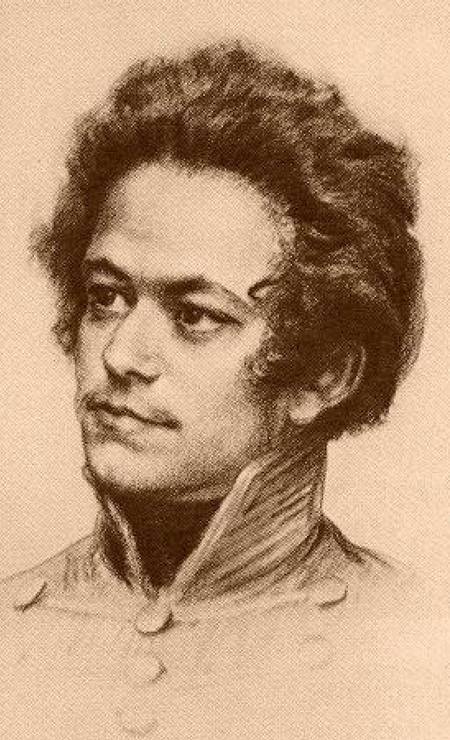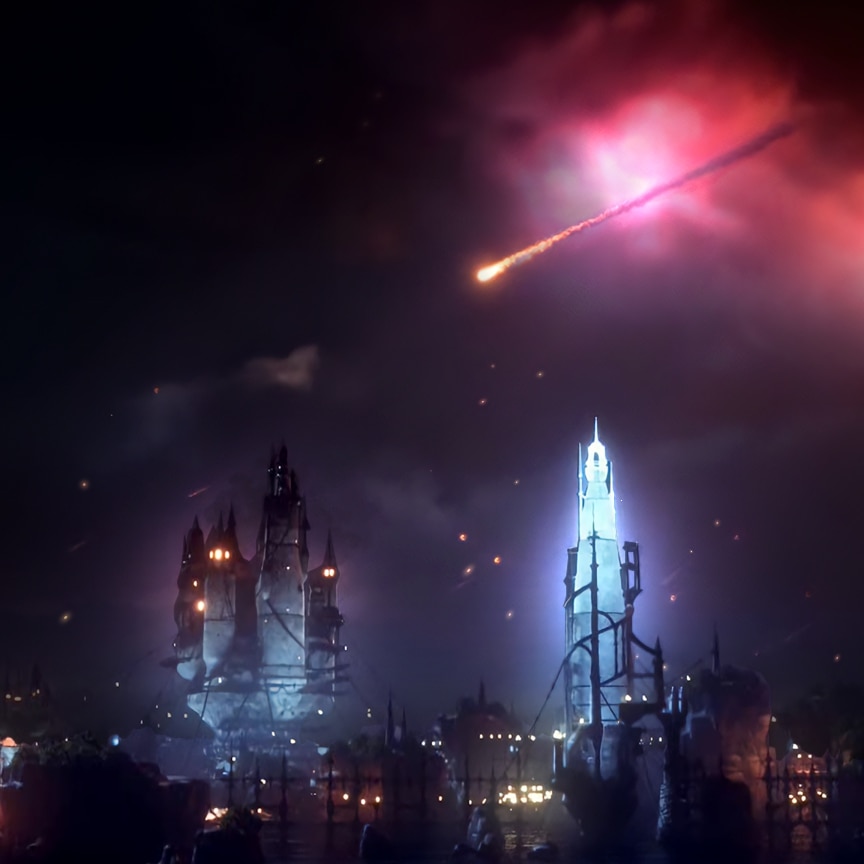I try reading about the Secret Treaties in Wikipedia, but it's not super conclusive.
You're talking about an inter-imperialist power conflict. There were no good guys. Both sides were using the war to destroy the workers' movement and contest for global hegemony.
looking for good guys in WW1 is probably not going to end well
The Red Army fighting the invasion by the Entente who wanted the Whites back in power so Russia would return to the war. That's technically not in WWI but it was both contemporaneous to it, related to it, and involved powers currently fighting in it.
The only "good guys" were the ones staying away from a filthy imperialist war, which was the Russian people turning against their own warmongering capitalist masters
World war 1 was the ultimate conclusion of the capitalist imperialism that emerged in the 19th century, with France and especially Britain as the victors. Germany, a rapidly industrialising, heavily militarized state, presented a threat to the status quo. What Germany wanted was to be in Britain's place as the chief imperialist in the world.
Capitalist countries must inevitably come into conflict - for a deeper understanding of this, read Imperialism, the Highest Stage if Capitalism by Lenin.
Germany wasn't doing anything good, but they weren't really any worse than Britain and France.
People call Britain and France in this time "democracies", although this is not true. They denied hundreds of millions their right to self-determination in their colonies, and only extended the right to vote to the privileged few in the mother countries.
World war 1 was an utter waste of lives. Millions upon millions of lives were destroyed so that capitalists could protect their empires. The only good that came of it was that it was the catalyst for the October Revolution.
Europe, especially the imperial powers in the 19th and early 20th centuries, were and are a community of vampires, ghouls, jackals, demons, serial killers, and thieves.
The most telling part of the conflict was that despite Austria-Hungary initiating the conflict, Germany took most of the "blame" and was maid to payout reparations and had its colonies and industrial sectors and provinces swallowed up by the other European powers.
The causes stated by Lenin, in Imperialism: Highest Stage of Capitalism were:
Imperial expansion & imperial competition - a need to acquire new markets, materials, colonies, and growth. These empires were driven by monopolies and capital accumulation/centralization created existential rivalries among the European powers. Especially between Germany and Great Britain. These two powers considered themselves existential enemies since Germany had quickly industrialized and become on par with British industry in a short time, creating fierce competition in the market. These competitions justified and necessitated the need for new territories, raw materials, etc.
I can't remember much about Lenin's understanding of how finance capital's contribution to WW1, just that it was fuel to the fire of the overwhelming tinder that the need for new markets and resources made.
WWI as viewed by Lenin was an inevitability of crisis that capitalism produces. There needed to be periodic wars or catastrophic events that opened up new markets and populations open for domination, labor and resource extraction, and dominance of capital. I think the last great event like this was the dissolution of the USSR and the shock and awe policies that plagued Russia in the 90s that saw its industrial sectors siphoned and sold off.
WW1 is shocking in its cataclysmic damage and depraved indifference to the huge loss of life, but such a conflict was all but inevitable given that these were conflicts that capital needed to accomplish to break through to acquire new wealth and profits. The modes of imperialism that Europe had practiced were on this trajectory.
Ultimately the war weakened European powers, set itself up for WW2, and let the US readapt and manage the way these powers extract wealth and capital from its former colonial subjects and other states in the developing world.
Something by Rosa Luxemburg:
The Imperialism of all countries knows no “understanding,” it knows only one right – capital’s profits: it knows only one language – the sword: it knows only one method – violence. And if it is now talking in all countries, in yours as well ours, about the “League of Nations,” “disarmament,” “rights of small nations,” “self-determination of the peoples,” it is merely using the customary lying phrases of the rulers for the purpose of lulling to sleep the watchfulness of the proletariat.
just a big dumb dick-measuring contest. a war fought over nothing, just an excuse for shitty countries to expand their military and whip up nationalistic fervor in the populace. sick old men making boys murder each other to increase their wealth and power. fuck WWI, what a piece of shit war
17 million dead, 5 monarchies abdicate, 3 empires collapsed. The ruling class couldn't fuck itself (and the rest of us) any harder until it reached another technological level in WWII.
Good to know my conclusion about there being no good guys in WWI that I've had since I was like 12 or something is the consensus opinion here
most wars don't really have good guys, if that helps
Some say there’s no more heroes, but the longer I look at the players of the world the more certain I am there never were any to begin with.
Essentially capitalism had progressed to a point sometime in the late 19th century where industrial monopolies had formed in the major European powers. The industrial monopolies had been purchased by finance capital, and the finance capital became monopolized as well. In search of cheaper profits, these monopolies began exporting capital overseas to other countries and colonies. The secret treaties were a product of this. France for instance was heavily invested in Russia (I think Lenin said France owned half of all foreign capital in Russia at the start of the war) so France signed a defense pact with Russia to protect their investments there.
The treaties also carved up the world outside of the major European powers so the Balkans, Africa, Asia, and the Pacific were all legally divided between the imperialist powers so that they could be more securely be exploited.
The German, French, British, and American finance capitalists ability to carve up the world (as they did with Austria-Hungary, the Ottoman empire, Africa, Asia, and they intended to do to Russia had the Bolsheviks not won) and exploit the people in these imperial holdings was why the war was fought and they were happy to liquidate the proletariat of all nations to do so. It had nothing to do with fighting autocracy or the right to self determination which only served as ideological cover for the postwar settlement and were quickly done away with especially in the British and French colonies. Therefore the British and French were not the "good guys". Tens of millions of people were slaughtered just so the British and French could pillage and enslave most of the world.
The UK deliberately stalled German efforts at Imperialism (which, like all imperialism, is bad), which threatened in turn German food security as its population increased. France wanted the coal and iron of the Rhineland and vengeance for the collapse of the Second Empire.
Germany saw the writing on the wall and began to look for a way to force the issue, thinking its better ships and more trained crews could carry them once France fell. Meanwhile A-H was trying to stabilise the empire and stop being racist to Hungarians by its usual tactic of being racist to Slavs (and conquering the Balkans would solve its own food crisis). The Serbians responded by going proto-fascist and shooting the heir to the throne and the least racist major leader. Russia wanted to conquer A-H, thinking that it was unstable and that there were definitely no issues in Russia politically or militarily. A-H said "bring it!" and looked forwards to having the border east of Kharkov.
Italy wanted the Mediterranean coast and Tyrol and a continuation of the eternal mountain wars
Every one of these assholes had it coming.
The most ironic part of the food security issues going into WW1 is that one of Germany's most notorious and nationalistic chemists, Fritz Haber, developed the industrial processes that would soon lead to cheap and effective mass-produced fertilizers: the synthesis of ammonia through the "Haber process". He won a Nobel Prize in 1918 for chemistry for that discovery. But it's a dual-use technology. You can use it to make bulk fertilizers, or you can use it to make bulk explosives.
But Haber didn't just take part in chemistry research. He was an enthusiastic advocate of chemical warfare. He relentlessly lobbied the German military to try using deadly gases, especially chlorine, as a weapon. German military officials agreed, and at the second battle of Ypres in 1915, Haber was personally there to supervise the first use of chlorine gas weapons. He would do this throughout the war on the western and eastern fronts.
Haber was one of the scientists who signed the Manifesto of the Ninety-Three. He was no dove. He knew what he was doing, he knew what his government was doing, and he had no moral issues with any of it.
As a person who has an advanced degree in history—with an emphasis on western military history—let me shed some light on it for you.
On June 28, 1914, Bosnian-Serb Gavrilo Princip assassinated Archduke Franz Ferdinand—Heir to the Throne of Austria-Hungary—(and his wife, Sophie, who matters, we assure you). This IGNITED THE EUROPEAN POWDER KEG. Therefore, pee pee declared war on poo poo, whom then was required to declare war on doo doo, followed by bum bum, wee wee, «word for vulva here», and so on.
That's the extent of it. Also the United States entered the war, right after one of their passenger ships was sunk in 1915! (Except they actually didn't. They didn't show the fuck up until the war was almost over, in late 1917.)
I am so glad I was able to pay for school by working instead of going into debt. Because everything I learned is baby-brain bullshit.
EUROPEAN POWDER KEG
Didn't realize how much I hate this expression until now.
I found a YouTube link in your comment. Here are links to the same video on alternative frontends that protect your privacy:
That’s the extent of it. Also the United States entered the war, right after one of their passenger ships was sunk in 1915! (Except they actually didn’t. They didn’t show the fuck up until the war was almost over, in late 1917.)
Let's blame the Maine on Spain!
Oh wait, wrong ship.
the Entente was not an equal footing situation from Brit and French POV, they essentially wanted to colonise Russia after the war. the rise of the Soviet Union was what prevented this and they never forgave them for it
There was probably some small player in WWI who got dragged into it due to treaties or to fight alongside a larger neighbouring force. Like idk Montenegro or Malta or something. But it's almost guaranteed that they were fighting or aiding some scumbag country in WWI given the fact that virtually everyone in WWI was a scumbag country, especially in Europe at the time.
Also don't quote me on Malta or Montengro, those were just hypotheticals and WWI isn't my speciality.
The best you're likely to find aside from some small country with reasonably clean hands in WWI would be an underdog; it's a bit like looking for the good guy during the century of humiliation in China (at least until the CPC formed and, I'd argue, the KMT under Sun Yat-Sen gets a pass too); the Qing Dynasty were definitely the underdogs and countries like Britain and Japan were definitely the aggressors but everyone was terrible and it only varied in the degree to which they were terrible. And usually then the only limiting factor in how terrible these players were was their relative political, economic, and military weakness that restrained them from being able to expand the scope of how terrible they were.
The least bad side in WW1 was Serbia and they still were barely okay-ish. Everyone else was like "We want more colonies!"

















